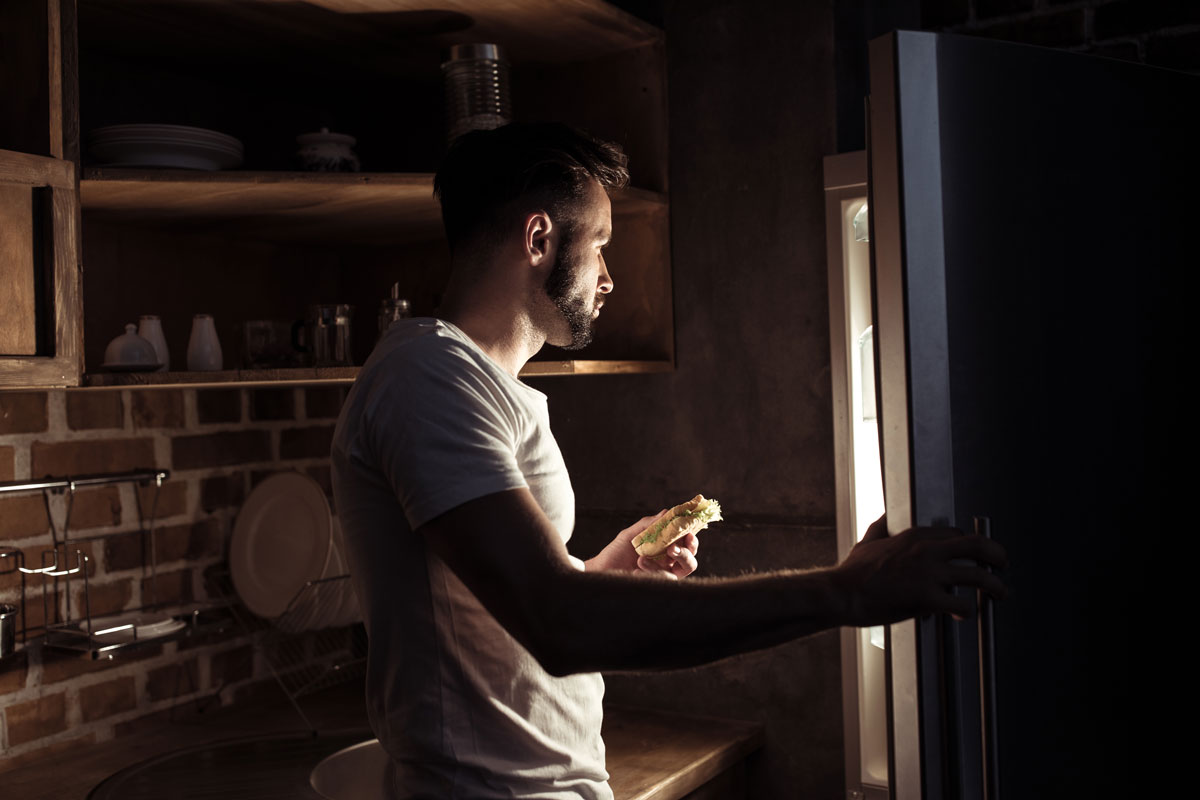1. Get restful sleep
Sleep isn’t just a nonnegotiable for physical health. It also plays an essential role in mental health.
One 2021 studyTrusted Source included data from 273,695 adults in the United States. The researchers found that people who averaged 6 hours of sleep or less per night were about 2.5 times more likely to report frequent mental distress than those who averaged more than 6 hours of sleep.
The quality of your sleep matters, too: Disrupted sleep can contribute to mental health symptoms.
2. Cut back on social media
“Constantly consuming information about other people’s lives may cause someone to compare themselves and promote feelings of low self-worth, which increases feelings of anxiety and depression,”.
says Adeeyo
To spend less time on social media, try to:
- keep your phone in a drawer or outside your bedroom while sleeping
- make a list of alternate, more meaningful activities to replace your usual scrolling sessions
- turn off notifications or delete social apps from your phone
3. Strengthen your relationships
Humans are social creatures, and strong relationships can have a positive influence on your mental health in various ways.
Friendships, for example, can:
- ease feelings of loneliness
- make it easier to get emotional support
- add meaning to your life
You have plenty of options for cultivating positive connections and nurturing your friendships:
- Keep in touch by checking in regularly, even with just a quick text or funny meme.
- Meet up for a morning walk or breakfast.
- Call for a short chat during your lunch break.
- Schedule biweekly or monthly dinner dates.
- Making a point to catch up when you do spend time together can make a difference, too. Research from 2018 suggests catching up and joking around in person predicted closer bonds above and beyond the number of hours participants spent together.
4. Move your body on your own terms
Exercise offers a range of mental health benefits, including:
- Relieving stress
- Lifting mood
- Helping you fall asleep faster and sleep longer
- Helping you manage symptoms of depression and anxiety conditions
- Movement can involve something different for every person, and it doesn’t have to mean going to the gym — unless you genuinely want to. Instead, make movement enjoyable for you by opting for physical activities that work best for your body, health, and preferences.
To get started, experiment with a range of physical activities and keep doing the ones that resonate with you.
Enjoyable movement could include:
- Joining a running or walking club
- Taking a slower-paced restorative yoga class
- Trying seated exercises
- Throwing a dance party
- Taking stretching breaks every hour
- Gardening or doing other work in your backyard
- A weekend family hike or walk along the beach
- In other words, you don’t have to do a vigorous workout to support mental wellness.
“Taking a few minutes to stretch can make a huge difference for your overall mental health. Stretching will help with blood flow and get more oxygen through your body, which can help you feel more relaxed and happy,” says Christopher S. Taylor, PhD, LPC-S, founder of Taylor Counselling Group, author of “My Digital Practice” and host of the “For Self-Examination” podcast.
Christopher S. Taylor, PhD, LPC-S
5. Savor nutrient-rich foods
Certain foods can also affect your mental health. To support improved mental health, try expanding your current diet to include foods packed with mood-boosting nutrients like:
- berries
- bananas
- beans
- whole grains
- fatty fish, like salmon
It can also help to simply make sure you fuel your body every day — eating anything is better than eating nothing.
Drinking plenty of water throughout the day can also have benefits. “When you’re dehydrated, you’re denying your brain and body the nutrients needed to survive and operate at a more optimal level,”
Adeeyo notes
Certain foods, namely alcohol, caffeine, refined carbs, and added sugars, may worsen anxiety symptoms. So, limiting these foods could help ease some of your symptoms.
6. Know when to take it easy
On difficult days, you might find it tough to do any of the above, which might make you feel even worse.
At times like these, Davis encourages turning to compassionate, more accessible strategies, like:
- creating a hygiene kit when you can’t shower — think dry shampoo and cleansing body wipes
- setting a timer to clean something for just 5 minutes
- buying a prepackaged meal when cooking anything feels close to impossible
- A similar approach you can try? Commit to taking one small step every day.
“Whether it’s making your bed, drinking one glass of water in the morning, or writing in a journal, making this daily promise to yourself will help to eventually become a habit, and you will begin to feel empowered,” Seponara explains.
Seponara
7. Make time for rest
While what constitutes “rest” may vary from person to person, it generally means giving your mind and body the opportunity to unwind and restore.
Do you find it challenging to relax and feel rested?
Rosie Acosta, meditation and yoga teacher and author of the book “You Are Radically Loved,” offers yoga Nidra, a sleep-based meditation, as one option to try.
She recommends the following steps:
- Lie on your back with your hands by your sides. Spread your feet apart — the distance of your hips, or a bit wider.
- Think of being relaxed, yet present. You feel calm, but still aware.
- Bring your attention to your physical body and then to your breath.
- On an inhale, imagine a slow-moving wave entering from the soles of your feet and traveling to the crown of your head.
- On the exhale, visualize a slow-moving wave traveling from the crown of your head back down to the soles of your feet.
- Feel your body become heavy, and stay with this relaxed present awareness for 10 to 30 minutes.
Only have a few minutes to relax? Acosta suggests these quick restorative practices:
Put both hands over your heart, close your eyes, and take several deep breaths, feeling the warmth and comfort of your touch.
Breathe in for 2 counts and breathe out for 4 counts for 12 cycles.
8. Get some sunshine
“The sun is a great source of vitamin D, and studiesTrusted Source show it can improve attitude and mood,”.
Taylor
Your outdoor time doesn’t have to be long, either. As Taylor notes, “Five minutes of blue skies can do your mind and your heart some real good.”
Taylor
Stuck inside all day? If you have several minutes, Taylor recommends:
- Taking a quick walk
- Sitting in your backyard
- Standing outside breathing in the fresh air
Or, try these options:
- Open the window near your desk
- Suggest taking a work meeting outside
- Eat lunch at a nearby park
- Exercise outdoors




